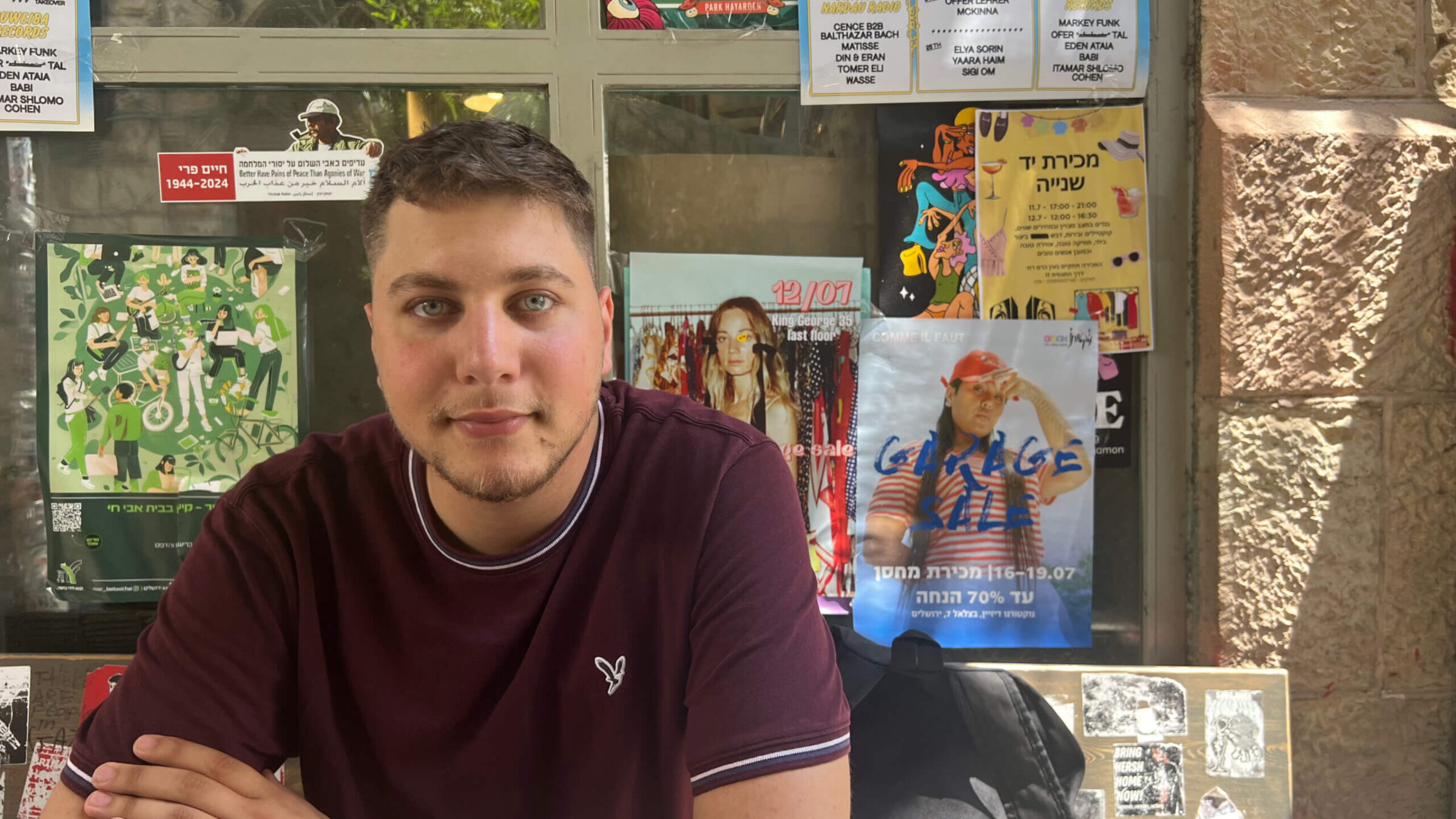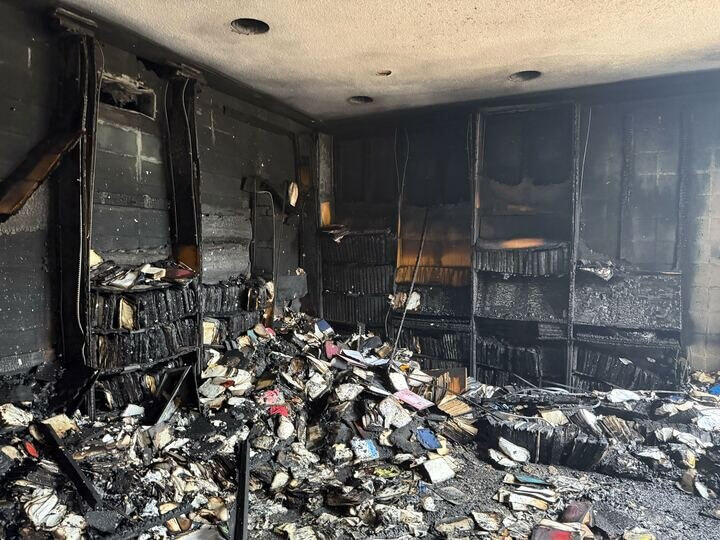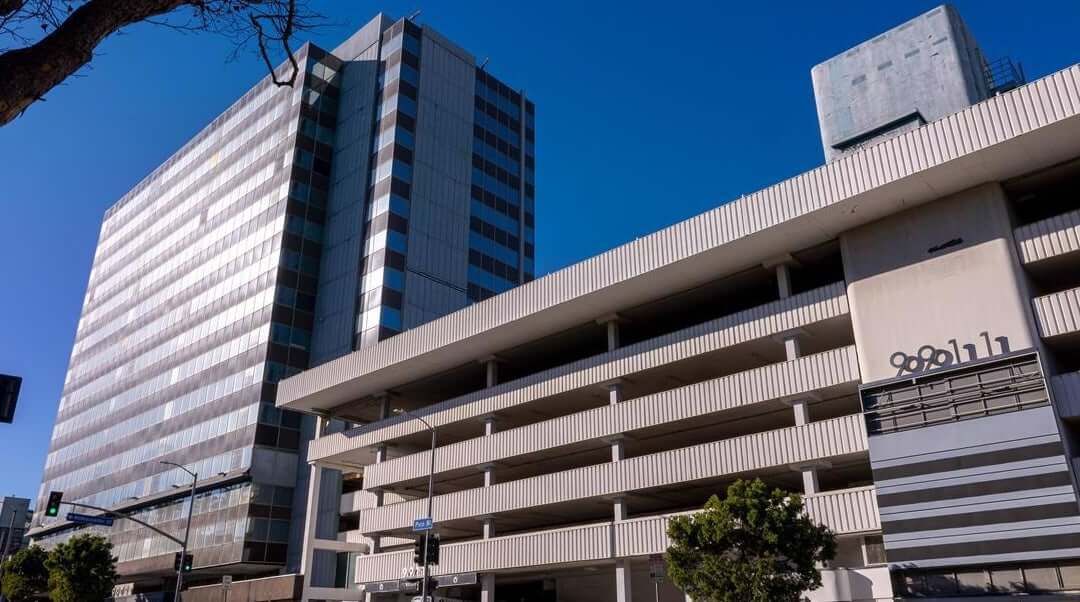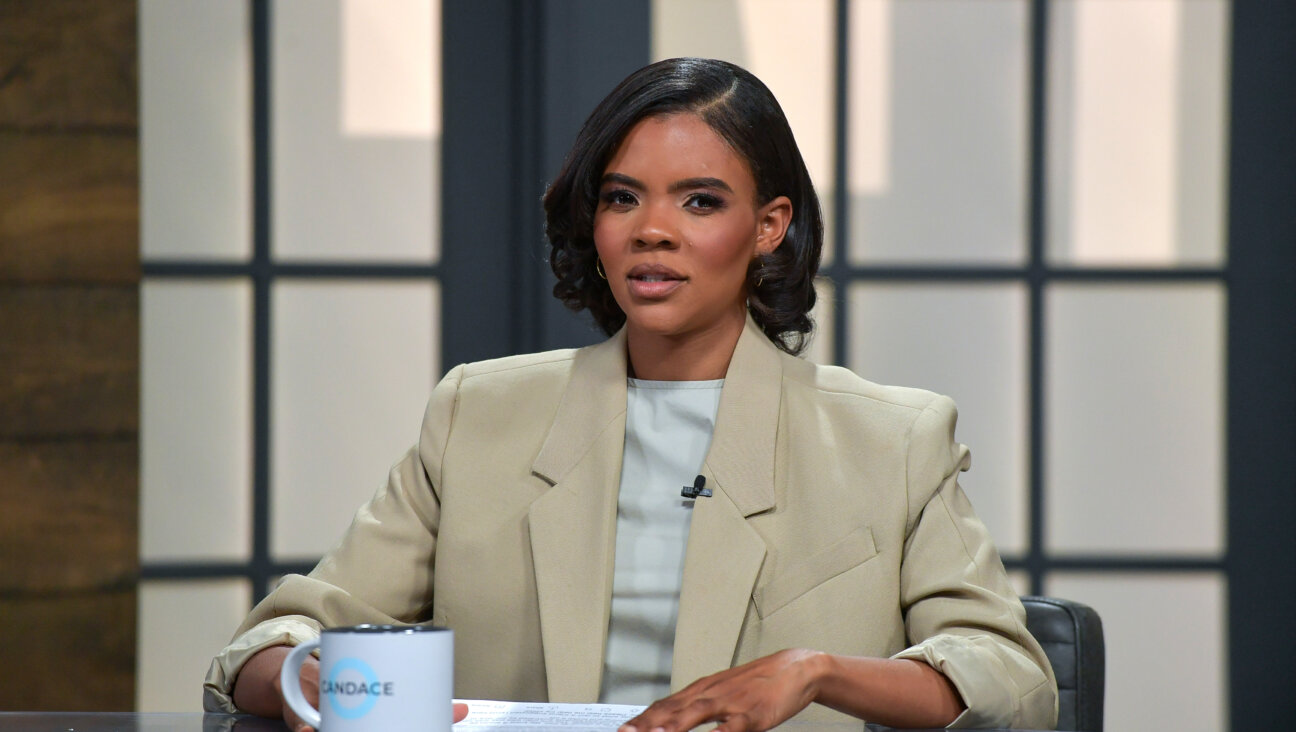He’s a Muslim Israeli who was close with Hersh Goldberg-Polin. Now he’s mourning his friend — and seeking change
‘This is the time to unite, Arabs and Jews,’ said Yanal Jabarin

Arab Israeli journalist Yanal Jabarin at Cafe Sira in Jerusalem, where he befriended Hersh Goldberg-Polin. Photo by Rob Eshman
Yanal Jabarin, an Arab Israeli journalist, first met Hersh Goldberg-Polin two years ago at Sira, a Jerusalem cafe that serves as a gathering place for fans of the Israeli soccer team HaPoel Jerusalem.
They talked about soccer, politics, and their mutual love of Jerusalem. Eventually, they started going to the team’s matches together.
After Hamas terrorists kidnapped Goldberg-Polin at the Nova music festival on Oct. 7, Jabarin wrote columns calling for his release in Arabic and Hebrew, and joined vigils for the hostages.
“We were friends,” Jabarin told me over coffee at Sira one afternoon in July, before Goldberg-Polin was viciously murdered by Hamas operatives in late August. “He was peace-loving.”
Many people have eulogized Goldberg-Polin, most movingly his mother, Rachel, who became one of the Oct. 7 hostages’ most high-profile advocates in the months after her son was kidnapped. But in the aftermath of such brutality, in the midst of so much killing and the death of so many innocents, I found Jabarin’s memories of Goldberg-Polin to be especially poignant — a marker of what Israeli-Palestinian relations could be, and a reminder of just how far there is to go.
“We will stand by his family as we have until now,” Jabarin texted me when news of Goldberg-Polin’s murder broke. “And we will bow our heads with them.”
I first reached out to Jabarin after watching a video of him addressing an early July peace conference in Tel Aviv attended by thousands of Jews and Arabs.
“This is the time to unite, Arabs and Jews,” he said in fluent Hebrew to a crowd of thousands. “Because despair is not an action plan.”
We met two weeks after that speech, at Cafe Sira, beneath a large poster of Goldberg-Polin. Then, there was still a sliver of hope that Goldberg-Polin would go free.
“I heard his mom,” Jabarin said, his blue-gray eyes misting over. “She’s not talking about revenge. She’s just saying: ‘Bring me to my son. I don’t want anything else.’ This message is killing me every time.”
At first, Jabarin attended the press conferences Rachel and John Goldberg-Polin started holding after Oct. 7 to demand the Israeli government prioritize securing the release of the hostages as a journalist. But soon, he couldn’t leave without hugging Rachel. He was covering the story of the hostages — and missing the one among them who was his friend.
Jabarin, 27, was born into a Muslim Arab family in Umm al-Fahm, in Israel’s north. His father is a chemical engineer; his mother works for the municipality. He has two sisters, one a pharmacology student and the other a music therapist. He himself graduated from Hebrew University and interned at the progressive Israeli news site Haaretz before becoming a broadcast journalist for DemocratTV and other Israeli outlets.
Arabs make up 20% of Israel, but only 2% of its broadcast journalists in Hebrew media. Jabarin is a minority within a minority. And if it’s hard to be an Israeli these days, it’s especially hard to be one who occupies such a unique, and delicate, place in Israeli society.
As an Arab Israeli, Jabarin is angry at the government’s neglect. In 2023, there were 244 killings within Israel’s Arab community, double the previous year’s number. This year, the internecine murders are on track to claim even more lives. Three weeks before we met, one of Jabarin’s best friends, a business student, was murdered in the Arab town of Tamra after he refused an extortion attempt.
Authorities, Jabarin said, have done nothing.
“I think Ben-Gvir is happy every time an Arab is killed,” he said, referring to Itamar Ben-Gvir, Israel’s far-right security minister.
And then there is the Palestinian issue, which Jabarin said he contends with every day, both as a journalist and as a Palestinian.
For almost two decades, he said, Prime Minister Benjamin Netanyahu has rejected efforts to negotiate and worked to divide Palestinians, entrenching the Israeli occupation in the West Bank and slowly erasing the possibility of a two-state solution.
Even so, “the majority of Israeli Arabs are still with two states,” he said, naming Marwan Barghouti, whom Israel has imprisoned on terrorism charges, as the most viable and unifying Palestinian leader.
But fear and extremism work to keep both sides apart, he added. Hamas, he said, is willing to fight to the last Palestinian, while some Israeli ministers are only interested in expanding Israel’s settlements in the occupied West Bank.
To those who reject compromise or coexistence, Jabarin asks a simple question.
“OK, then what’s your answer?” he said. “To give Palestinians citizenship, or an apartheid state?”
Jabarin’s multifaceted identity — as an Arab, a Muslim, an Israeli, a journalist, a peace activist, and a soccer fan — helped him connect with Goldberg-Polin, who was several years younger, and committed to the idea of peaceful Israeli-Palestinian coexistence. He was watching their beloved HaPoel team play at Teddy Stadium in Jerusalem when he started receiving messages via Telegram and WhatsApp that Goldberg-Polin had been killed.
The moment he heard the news, he left the stadium and returned to Cafe Sira, where he and Goldberg-Polin had first met. He wanted to better understand what happened, and be among the friends he and Polin-Goldberg had made while processing the tragic news.
“It was tough,” Jabarin wrote to me. “It’s very difficult for me, but who am I compared to Hersh’s family, who suffered and struggled for almost a year?”
At first, he said, he hoped that the shock of Goldberg-Polin’s murder — alongside that of five other hostages —would push the public and politicians toward a ceasefire and hostage deal and a larger Israeli-Palestinian settlement. But given the state of the region, he’s keeping his expectations tempered.
“The Jewish people have become more right,” he said. “The left are a minority. Not a lot of people share my message.”
But he also feels alienated by much of the rhetoric of protesters outside Israel.
A month before we met, a group of anti-Israel protesters from Italy invited him to speak via Zoom, during which conversation they called for the end of Israel.
“It was not my message as a Palestinian. I can’t accept the idea to make Israel disappear,” Jabarin said. “I’m Israeli.”
The American college students protesting the Gaza War can bring welcome attention to the conflict, he said, but he opposes calls to “free Palestine of the Jewish people.”
“We should oppose the occupation, but we shouldn’t oppose the Jewish people,” he said. “A lot of times people outside Israel aren’t making the difference between these two things.”
One of his lasting memories of Goldberg-Polin, Jabarin said, would be a poster that Goldberg-Polin had on his bedroom wall. It was a photo of the city where they lived with the caption, “Jerusalem for All.”
“I’m four generations since the Nakba,” Jabarin said, using the Arabic term for the expulsion and exodus of Palestinians that followed the 1948 establishment of Israel. “I still have to believe peace is the answer. The end of the occupation is the answer. Hope is the answer.”
















